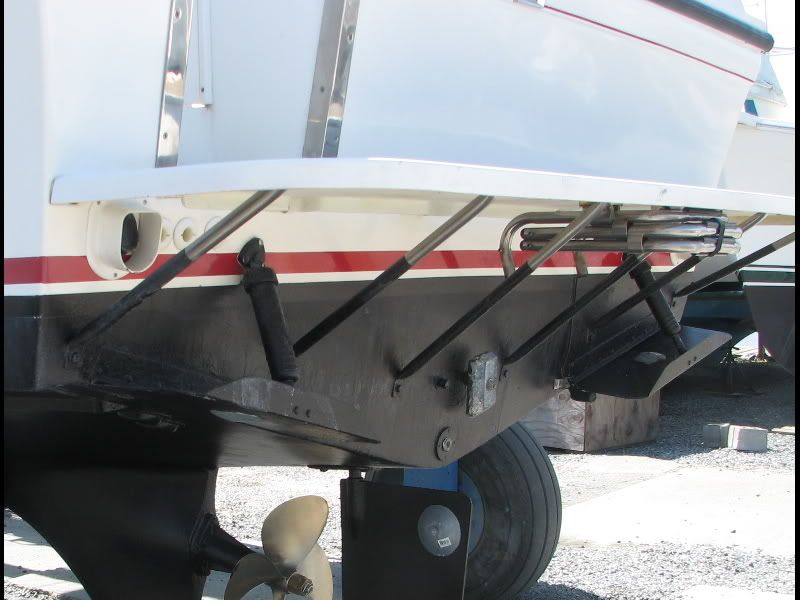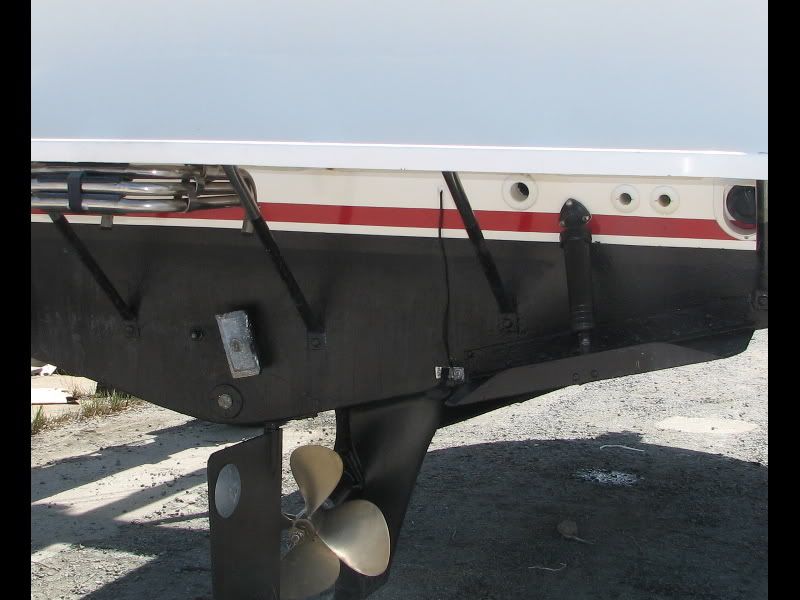• Welcome to https://albinowners.net, home of Albin Owners Group!
• If you don't remember your password, use the I forgot my password link to reset it.
• Contact Us if you have any questions. If you're not receiving our email, include a phone number where we can text you.
• If you don't remember your password, use the I forgot my password link to reset it.
• Contact Us if you have any questions. If you're not receiving our email, include a phone number where we can text you.
FAQ:
• Membership information
• Burgees
• How to post photos
• Membership information
• Burgees
• How to post photos
transducer placement
-
markclarke
transducer placement
I am looking for the best place to mount a fishfinder transducer. I keep our Albin 28 on a lift. I already have a depth sounder.
- jcollins
- In Memorium
- Posts: 4927
- Joined: Sun Apr 16, 2006 9:05 pm
- Boat Make/Model (or None): Boatless
- Home Port: Baltimore
- Location: Seneca Creek Marina
- Contact:
Hi Mark,
Welcome to the board.
Are you going with through-hull or transom mount?
I'll be installing a transom mount this spring. Here's some information I found.
Step One - Determine Where to Mount the Transducer
1. Begin the transducer installation by determining where on the transom to install the transducer. Consider the following to find the best location:
2. It is very important to locate the transducer in an area which is relatively free of turbulent water, As a boat moves through the water, turbulence is generated by the weight of the boat, and the thrust of the propeller(s). This turbulent water is normally confined to areas immediately aft of ribs, strakes or rows of rivets on the bottom of the boat, and in the immediate area of the propeller(s). On outboard or inboard/outboard boats it is best to stay at least 15" (40cm) to the side of the propeller(s)
3. If possible, viewing the transom of the boat while the boat is moving will provide the best means of locating turbulence free water. If maximum high-speed operation is a high priority, this is the recommended method. If this is not possible, select a location on the transom where the hull forward of this location is smooth, flat, and free of protrusions or ribs
4. The transducer when mounted should point straight down. The design of the transducer will accommodate a wide range of deadrises and remain ported straight down
5. On boats with stepped hulls, it may be possible to mount the transducer on the step. Never mount the transducer on the transom behind a step, as this area of the transom will not be in contact with the water at high speed
6. If the propeller(s) is (are) forward of the transom, it may be impossible to find an area clear from turbulence, and a different mounting technique or transducer type should be considered.

Welcome to the board.
Are you going with through-hull or transom mount?
I'll be installing a transom mount this spring. Here's some information I found.
Step One - Determine Where to Mount the Transducer
1. Begin the transducer installation by determining where on the transom to install the transducer. Consider the following to find the best location:
2. It is very important to locate the transducer in an area which is relatively free of turbulent water, As a boat moves through the water, turbulence is generated by the weight of the boat, and the thrust of the propeller(s). This turbulent water is normally confined to areas immediately aft of ribs, strakes or rows of rivets on the bottom of the boat, and in the immediate area of the propeller(s). On outboard or inboard/outboard boats it is best to stay at least 15" (40cm) to the side of the propeller(s)
3. If possible, viewing the transom of the boat while the boat is moving will provide the best means of locating turbulence free water. If maximum high-speed operation is a high priority, this is the recommended method. If this is not possible, select a location on the transom where the hull forward of this location is smooth, flat, and free of protrusions or ribs
4. The transducer when mounted should point straight down. The design of the transducer will accommodate a wide range of deadrises and remain ported straight down
5. On boats with stepped hulls, it may be possible to mount the transducer on the step. Never mount the transducer on the transom behind a step, as this area of the transom will not be in contact with the water at high speed
6. If the propeller(s) is (are) forward of the transom, it may be impossible to find an area clear from turbulence, and a different mounting technique or transducer type should be considered.

John
Former - 28 TE Convertible"Afterglow"
Former - 28 TE Convertible"Afterglow"
- mhanna
- Gold Member

- Posts: 270
- Joined: Mon Oct 02, 2006 11:45 am
- Home Port: Sayville NY
- Location: Sayville, NY
My Albin came with a Furuno Color unit with a through hull transducer. It works ok at 8ft or more but gets lost above that. It marks detail and I can see the Fish near the bottom.
I put on a cheap Lowrance unit ($150) that does a great job from 2ft to 60ft. I user it most of the time when running around the bay to just know my depth.
I mounted a transom ducer because it was easy and cheap. It works great for its intended purpose of seeing the bottom even at speed. It may not be a detailed as the larger thru hull, but I even had 2 units on my last boat.
Anyway, Here are some shots of the location, I used something just like Johns pictures to find the spot.


Matt[/img]
I put on a cheap Lowrance unit ($150) that does a great job from 2ft to 60ft. I user it most of the time when running around the bay to just know my depth.
I mounted a transom ducer because it was easy and cheap. It works great for its intended purpose of seeing the bottom even at speed. It may not be a detailed as the larger thru hull, but I even had 2 units on my last boat.
Anyway, Here are some shots of the location, I used something just like Johns pictures to find the spot.


Matt[/img]
2001 28TE - Doghouse
-
Maye Marie
- Gold Member

- Posts: 110
- Joined: Sun May 21, 2006 10:15 pm
- Boat Make/Model (or None): Albin TE 28
- Home Port: Mystic River Marina Mystic Ct. Slipped
- Location: Tolland Connecticut
You can mount the transducer on the angle of your hull. You will take the angle out by cutting the speed fairing to match the angle of the hull. The top side of the cut fairing is used on the inside of the hull for mounting purposes. Most transducers have directions that will come with to explain. I mounted mine on the port side just on the outside of the stringer and just aft of the seat. I would see if some one here know of a better location, for mine will lose contact in chop and high speed.
Terry & Karen Ober
28 TE
Maye Marie
Mystic Ct.
28 TE
Maye Marie
Mystic Ct.
- Russell
- Gold Member

- Posts: 831
- Joined: Mon Oct 09, 2006 3:34 pm
- Boat Make/Model (or None): Albin 28 TE FD
- Home Port: Stuart, FL
- Location: Stuart, FL
If you do not already have a transducer take a look at the Airmar B60 tilted element transducers. They come in 12 and 20 degree angles. I replaced mine with one last year and it is nice to have a flush mounted transducer instead of that big fairing block sticking out. The yard I use for lift outs use fork lifts and I always worried they would hit the old transducer on its fairing.
Russ
2005 Flush Deck
Honey Girl
Volvo D6-310
Stuart FL
2005 Flush Deck
Honey Girl
Volvo D6-310
Stuart FL
